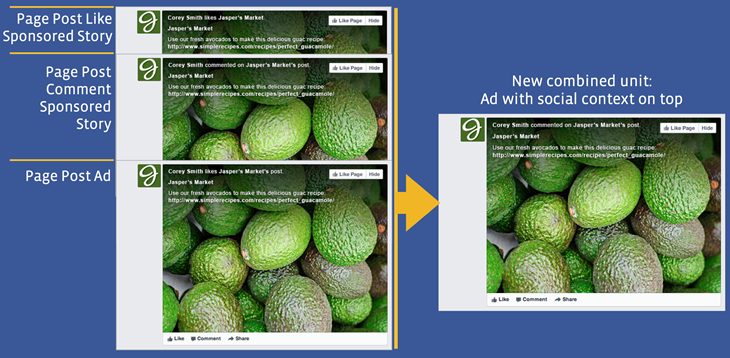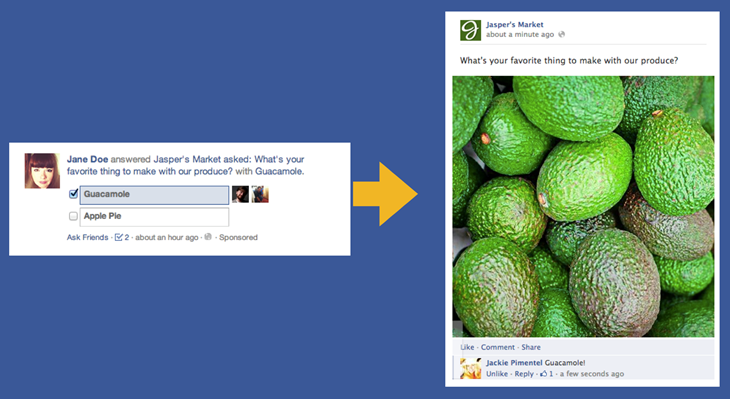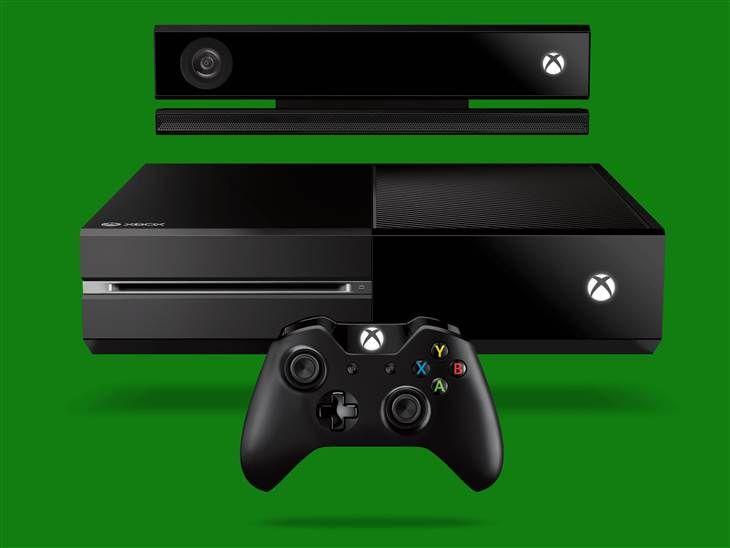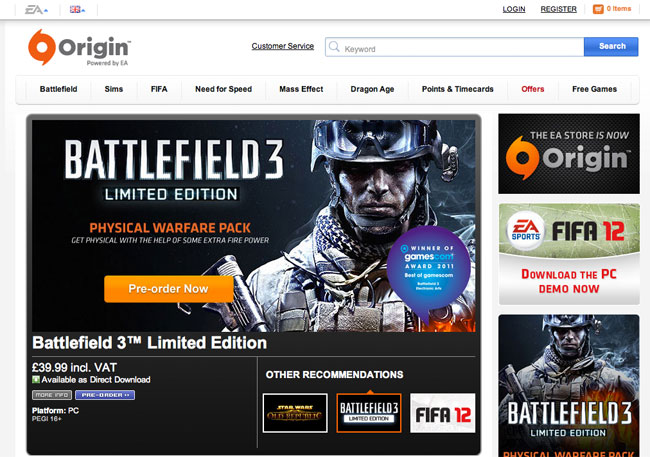Twisted Pixel brings their own special brand of crazy to this Xbox One launch title. The first look at the game may surprise you, but check out the gameplay and see what kind of action awaits on Microsoft’s new console.
Twisted Pixel brings their own special brand of crazy to this Xbox One launch title. The first look at the game may surprise you, but check out the gameplay and see what kind of action awaits on Microsoft’s new console.
Garrett shows off his moves and his tools in the E3 trailer for the newest entry in the thief franchise. Sporting shiny jewels, photo realistic visuals, and numerous weapons the trailer shows off the thief players can one day hope to be.
When a commercial makes such a strong emotional connection, it’s an effective way to market your product. If this commercial doesn’t move you, you have a heart of stone. Perhaps we can see game marketers make TV commercials with similar broad, emotional appeal. It would be an effective way to convince a broad demographic that your console was worthy of everyone in the family.
By Elena Zanone
Yesterday Facebook announced plans to streamline its ad products by simplifying its offerings and eliminating advertising cross-over after an influx of feedback from marketers. From these changes, users will see a more standard set of ads, as the social network intends to reduce its twenty-seven different ad units to less than half of that in the next six months.
“We noticed that many ad units accomplish the same goals, so we’re cutting out these redundancies. This includes removing the Questions product for Pages because marketers can simply ask a question in a post and get answers in comments,” said the company in their blog.
Facebook Ads Product Manager Fidji Simo told reporters that advertising on Facebook would be switched around completely. Instead of an advertiser indicating it wants to create a Like post ad or Sponsored story, it can indicate that it is trying to drive more traffic to its website, or that it desires a mobile app install ad, or it is going for more foot traffic or conversions.
Essentially, the overall ad campaign goal will be the first thing an advertiser indicates, not the type of ad model. Some potential examples of the objectives Facebook can offer are to drive awareness of a message, drive views of a video, drive Likes, drive online sales, or drive people in-stores with coupons, and more.
“What we really want to do is reduce redundancies and make sure that there is one clear path for every advertiser that wants to achieve an objective… We’ve worked really, really closely with marketers, and we actually learned from them about what is working for them.”
Instead of having to create three separate types of ads to achieve an objective, these types will be combined:

For example, posting a question ad doesn’t necessarily drive much engagement, but with Facebook’s new capabilities this type of ad can be rolled into a photo ad that is much more eye-catching to users.

The company’s Director of Product Marketing Brian Boland noted, “From audience selection, to targeting and choosing the right people that matter to you, to the actual creative ad format — if we make those steps easier, that actually improves user experience. There’s a better piece of creative and a more relevant piece of creative in front of that person. As we do everything, we really focus on the user experience in the News Feed.”
“In the coming weeks and months, marketers will start to see these streamlined changes to our ads solutions. We think these updates will make it easier for them to do what they do best: reach the right groups of people with the right message and drive the results they care most about,” the company said.
Source: Facebook
A new site launched by Microsoft answers a series of questions posed by most gamers after their press conference two weeks ago. The site speaks about the need for an online connection (though not a persistent one), the ability to play used games and many other subjects. The Xbox One doesn’t require a persistent online connection as was previously thought, but in order to play games the system does need to be connected to the Internet at least once every 24 hours. The connection isn’t required to watch TV or movies, but even single-player games will mean you have to allow the Xbox One to make an Internet connection every 24 hours. Multiplayer online games will, of course, require an online connection; Microsoft says 1.5 Mbps is the speed you need for this functionality.
The delivery system for games has also changed. Discs were revealed to be only a means of installing games faster, and not necessary to run games; the disc provides the content and the license key. “The platform policies also contained something that will likely be viewed as negative: games will be made available via digital distribution through Xbox Live on the day of release of the packaged product,” points out analyst Michael Pachter in an investment note. The implications are, as Pachter points out, “this disclosure has the greatest potential to negatively impact GameStop’s business, as GameStop is unlikely to participate directly in these digital sales; however, we believe it is in the best interests of Microsoft and the publishers to integrate GameStop’s PowerUp Rewards currency into digital transactions in some manner. We think it is possible that either gamers will allowed to purchase digital content key codes from GameStop’s DLC kiosks, or that Microsoft will somehow allow the company to integrate its PowerUp Rewards program directly through Xbox Live.”

As far as users are concerned, you won’t have to get up to put a disc in the console every time you want to play. Microsoft has also made sure the whole family can play; games upload to a cloud storage where the owner and 10 family members log into the system and have access to all of the games uploaded to the system. Another piece of information added was the fact that there would be no additional fees to play used games, at the basic level. If developers allow it, games can be traded in and resold. Allowing friends to borrow games will also be possible, but only if the other person has already been on your friends list for over 30 days. However, while games can be given to a friend, each game can only be shared once.
Finally, the site clears up the system’s necessity to have Kinect connected at all times. While the device must be connected to the system, the Kinect can be turned off. In addition, the feature to turn the system on and off by saying “Xbox On or Xbox Off” can be turned off as well. All of these answer some very pressing questions gamers have had, but may not be the answers they wanted to hear. More information on the system will probably surface at E3.
The timing of this web site is no mistake. Microsoft is doubtless trying to put this issue behind them prior to E3, where the company will want to turn the focus to the Xbox One’s lineup of games. It’s going to work, too, at least for next week, when the audience will be focusing on the many shiny new games being dangled in front of them rather than details of licensing policy. The underlying question is just how many people care about this issue, and if it will really matter in the long term. Some commenters have pointed out that Steam has even stricter restrictions on software, and that hasn’t kept Valve from developing an enormous following. We also have yet to see Sony’s stance on these same issues, which may be similar to Microsoft’s. Gauging the real impact of this issue will take time.
Source: GI.biz
These days it seems like every company uses social media as a means of marketing their brand, product or service. Having a strong social presence can be an incredibly important tool when used correctly, but without the proper readiness it can also fail (sometimes spectacularly). Small developers starting out often turn to social media as a form of free advertising for their projects, for example. Having a Facebook fan page simply for the purpose of having a fan page though isn’t an effective use of this marketing channel.
For social media to work there has to be a need to be social, and a demand for a forum with the product or developer. Games are typically a product where fans want to engage with the creators of the game, so that’s an advantage. However, the genre of the game makes a huge difference to the desire of game players to engage socially. Casual gamers will not feel as much of an urge to share strategy tips as will players of League of Legends, for instance. The demographics of a game will also affect the desire for social engagement; the people that are already the most connected into social media will be most likely to extend that to their favorite games. Social media for games needs to be created with this in mind.
Gamers will be looking to share their experiences and learn from other players, as well as find out the latest news about games they like. It’s important to keep focused on what the people want; endless tweets about other, dissimilar games you are trying to push might well drive people away. Regular doses of useful, interesting or amusing info designed for the audience are important parts of the strategy.
Another problem for social media lies in the various tools with which people utilize social media. Joining in extended discussions from a mobile device as opposed to a computer isn’t necessarily easy. As a mobile developer, starting up a long roundtable discussion with your users may not be the best strategy. A Twitter account where users can communicate in 140 characters or less may better suit the business strategy.
There is no a reason why a company should bar itself from using social media altogether, but being prepared to use the media strategy most relevant to the product, be it a game, device or app, is of the utmost importance. Utilizing social media simply because all of the other cool companies are doing it is not a good enough reason to enter the social media marketplace.
Source: Entrepreneur.com
YouTube, Twitter and Facebook are the birthplace of buzz – which makes viral marketing more important than ever. Viral marketing can reach a massive audience in a relatively short amount of time, in a cost-effective way. That’s why Inc.com spoke with Wharton professor Jonah Berger to get a list of the 6 techniques he recommends to make a story go viral.
Berger’s list started with Social Currency; “People love to talk about things that make them look good,” said Berger. Talking about how well you’ve done with the latest game would certainly fit right in, or showing off that cool Minecraft build you created. Triggers are the next thing Berger mentioned, connect your game to things that are already popular topics, like breaking news events.
Next on Berger’s list is Emotion; making sure that people have a strong emotion connected to your game. The next item, Public Availability, is where game design meets marketing. Viral appeal is much more likely if it’s something people can easily share or see.
Finally, Berger mentions Practical Value and Stories. Practical Value is a tough hurdle for games; Berger notes that people like to help others with information like discounts or useful tips. Of course, tips only work if you’re already playing a game, and discounts on a game have a similar problem. If there’s a way your game can be useful even to non-players (like, for instance, helping you learn the way around a city) that will help virality.
Stories are of course a common part of games, as players love to tell about how they conquered in that last round of Call of Duty. It’s even more effective if a game provides ways to share your videos or images; this is why that capability is being built into next-gen consoles.
Source: Inc.com
By Steve Peterson
Electronic Arts’ Origin digital distribution system has a new boss, Andrew Wilson, who has added management of Origin to his task of running EA Sports. The [a]list Daily will be sitting down with Wilson at E3 to discover what’s in store for Origin. However, it looks like some changes are already beginning.
Last year in an interview with GamesIndustry International, then-head of Origin David DeMartini declared that Origin would not copy Steam’s deep discounting of games, saying that “I just think it cheapens your intellectual property.” Fast-forward to today, when Origin’s site is now featuring a survey about a sale on games. The survey lives on the “Right Rail,” which is directly to the right of the main window and says “Gamers’ Choice: Vote for a $5 game,” asking gamers to choose which game they’d like to see for $5: Mass Effect 3, Battlefield 3, or The Sims 3. The implication being that at some point, we’ll get the chance to buy one of those games at that price.
Electronic Arts has put tremendous effort into Origin’s technology and back end in order to build out a distribution system capable of handling games on multiple platforms. The emphasis has been on getting the site scaled up and working properly. Is it time for Electronic Arts to put more effort into the community and social features It certainly seems like that’s the natural next step to take. Origin says this about its mission: “Unify your gaming life with Origin. Take your friends and the games you love with you wherever you go, and connect with them across multiple devices. With great games from some of the world’s best video game publishers, and exclusive content and deals you can’t get anywhere else, Origin is your ultimate gaming service.”

Origin lets you log in from anywhere to your account to access your games, and uses your Origin ID to link you with other gamers. The client also includes a variety of community features, but there’s always room for improvement. More engagement with customers as the survey hints at, would be welcomed. Moreover, regular sales of titles (perhaps not the way Steam does it) may well be worthwhile. After all, unlike with retail there’s no cost of goods to worry about; the transaction costs are minor. In the end, it’s about how much money you put in the bank, not the profit per unit.
While Origin currently boasts over 500 games from over 70 different partners, we may see that expand as the service attempts to wrest market share away from the juggernaut that is Steam. Wilson has overseen the tremendous growth of FIFA into a vibrant community with multiple platforms connecting together. If he can translate that success into a broad range of games centered around Origin, the service could be in for substantial growth.
It’s not going to be an easy task though. Steam continues to add features, and other game communities and digital distribution services are also competing for market share. Everyone sees the tremendous benefit in owning the relationship with gamers, and competition can be expected to continue unabated. Origin will need to keep stepping up its game to advance to the next level.
From flying punches to heat vision, the official trailer for the Man of Steel mobile game shows off Superman’s powers that will be at your disposal in the upcoming game. The game is set to hit virtual stores on June 14, the same day as its movie counterpart.
As queen of the Nile, Cleopatra has many problems to deal with according to the new trailer for Total War: Rome II. The encroaching Roman Empire, marriage out of necessity, murder and betrayal are all factors the queen must deal with during the campaign. The trailer shows the games release date fro September 3, this year.